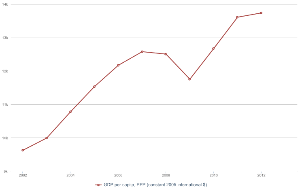Boratav: is economic crisis going to end the rule of AKP?
Korkut Boratav on the sendika.org site writes that there is a curious expectation among liberal and some leftist circles that Turkey, because it is supposedly one of the most fragile of the emerging markets, faces the threat of the desertion of financial capital as the world economy has become volatile, and that this is supposedly going to bring about the end of the AKP power. First of all, there is no ground for saying that the fragility of the Turkish economy is bound to produce an immediate crisis. Secondly, financial capital is not against the AKP. In the current global economic conjuncture, Turkey is in fact in a more favorable position than the energy exporting economies of the periphery like Russia that are especially hard hit. Turkey on the contrary benefits from the fall of the price of oil, which helps to slow down the growth of its current account deficit; the low budget deficit ensures that Turkish state bonds remain reliable instruments of investment. Chronic vulnerabilities do cause the Turkish economy to slow down during 2015, leading it toward a path of zero growth; however, the expectation of a dramatic crisis erupting before the election does not seem realistic. And what about the political uncertainties that the AKP causes? What about the possibility of Turkey becoming an Islamic fascist regime? Does finance capital care? The AKP’s string of electoral and referendum victories have led finance capital to pour money into the Turkish stock market and into Turkish state bonds.
Welfare Policies are the Key to the AKP’s Electoral Successes
By Kemal Kaya (vol. 7, no. 8 of the Turkey Analyst)
Redistribution through social services and welfare programs is a crucial source of electoral strength for the Justice and Development Party (AKP). However, this model for political success also strains the relation between the AKP and those societal segments that support the welfare programs with their taxes. The results of the March 30 elections demonstrate that support for the AKP is declining among the newly urbanized, conservative middle class, and show that the party faces a new challenge, not unlike the one that has been faced by European social democratic parties in government.




